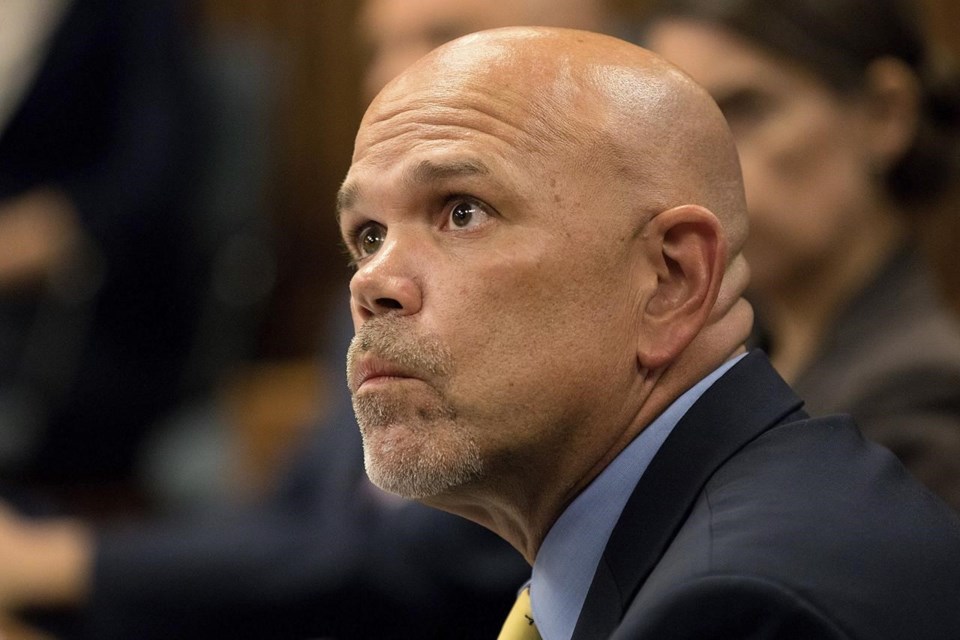PHOENIX (AP) — An Arizona attorney on Friday urged a judge to allow the state to enforce a near-total ban on abortions under a law that has been blocked for nearly 50 years through a now-overruled U.S. Supreme Court decision.
Assistant Attorney General Beau Roysden said the judge's role is simple: now that the high court has overturned Roe v. Wade, the 1973 ruling that legalized abortion, Pima County Superior Court Judge Kellie Johnson should lift an injunction preventing enforcement of that law.
Planned Parenthood and its Arizona affiliate argued that the judge should only allow the law to be enforced against people who are not doctors so that other abortion restrictions that the Legislature has enacted since Roe remain relevant.
But Roysden said those laws were passed because the Supreme Court said the state had to recognize a constitutional right to abortion.
“Those laws were intended to regulate and limit abortion within the power the legislature had," Roysden told the judge. "They were never intended ... to statutorily create the right to abortion.”
Planned Parenthood Attorney Sarah Mac Dougall argued that the proper way to deal with conflicting laws is to limit the reach of the old one.
Not doing so, she told Johnson, “would turn every principle of statutory interpretation on its head and grant him an undemocratic windfall by allowing the oldest statute on abortion in Arizona books to resurrect and somehow overtake all other legislative enactments on abortion.”
Planned Parenthood said that a multitude of laws restricting and regulating abortion would be rendered meaningless if the court allowed the old law to be enforced without restrictions. Just this year, the Legislature passed a law signed by Republican Gov. Doug Ducey that criminalizes performing abortions after 15 weeks of pregnancy. That goes into effect on Sept. 24, and Ducey contends that the new law he signed takes precedence over the pre-statehood law.
Roysden, however, noted that the 15-week law specifically says it does not create a right to abortion or mean that the pre-statehood law is unenforceable.
The court battle in Arizona is one of many playing out in Republican-led states across the country in the wake of the Supreme Court's conservative majority overturning Roe in June. States with pre-Roe bans on the books are seeking to enforce them, while others that had “trigger” laws severely restricting or banning abortion if Roe were overturned want to enforce them.
Johnson said she would consider the arguments and issue a ruling after Sept. 20, a date determined by a procedural issue.
The state's near-total abortion ban was first enacted decades before Arizona was granted statehood in 1912, and it's only exception is if the life of the patient is in danger.
Providers across Arizona stopped abortions after the Supreme Court’s June 24 opinion overturning Roe, saying it was too risky to move ahead while the old ban was still on the books. A 2021 law that grants all rights to pre-born children is also in play. A federal judge blocked a major part of that law on July 11, but providers have not restarted abortion services.
The Pima County attorney's office is siding with Planned Parenthood, with Chief Civil Deputy Samuel Brown telling Johnson that Arizonans need to know what laws will be enforced and that is not now true.
“There are currently three different definitions that suggest when an abortion is allowed in Arizona. If and when this injunction is lifted, there will be a fourth definition," Brown said. "On Sept. 24, there will be a fifth."
The case over the so-called personhood law originated in 1971 when the Tucson affiliate of Planned Parenthood, several doctors and a woman who wanted an abortion sued to overturn the rule. A Pima County trial judge decided the next year that a fetus does not have constitutionally protected rights and that the law banning abortion also violated the doctors’ rights to practice medicine as they saw fit.
The Arizona Court of Appeals overturned that ruling, rejecting wholesale the lower court’s reasoning that the abortion ban was unconstitutional and saying it could be enforced.
“Appellees’ complaints against the abortion statutes are peculiarly within the field occupied by the Legislature and any problem concerning abortion should be solved by that body,” the appeals court ruling said. “We can only reiterate that we are not a super-legislature.”
Less than three weeks later, the U.S. Supreme Court ruled in Roe, and the appeals court reversed its earlier judgment. The law was then blocked.
Bob Christie, The Associated Press



